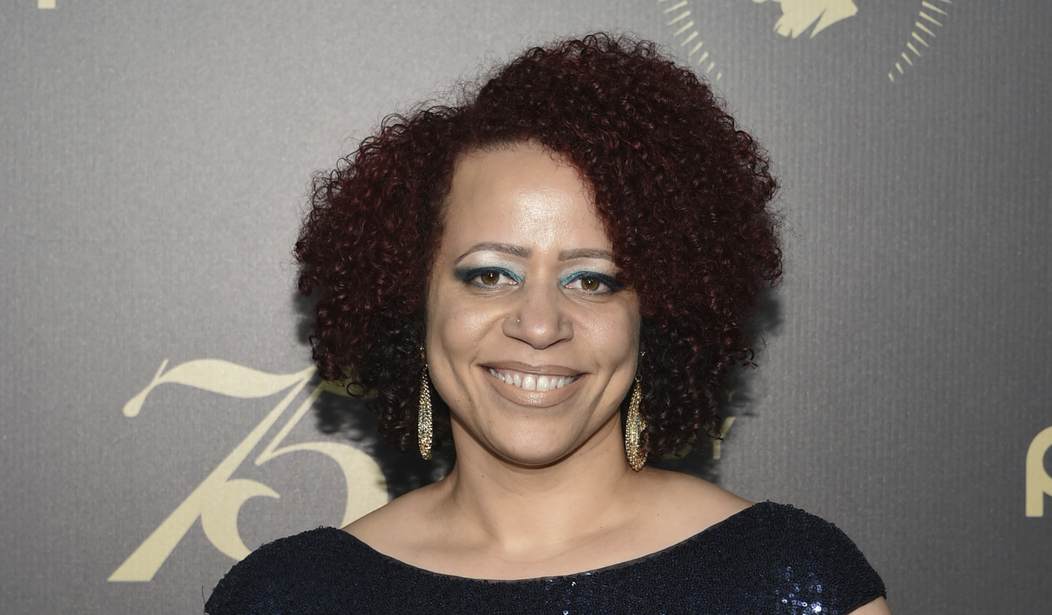Back in 2017 when the New York Times Magazine published Nikole Hannah-Jones’s 1619 Project, I got a sinking feeling in the pit of my stomach because no matter how the subject of slavery was framed, Hannah-Jones’s argument that American history began when slaves first landed in North America was going to be a difficult narrative to overcome.
It fits in perfectly with many left-wing tropes about America — its founding, its fight for independence and self-determination, and its claims to greatness all being figments of the right’s imagination.
Related: Florida’s Challenge to Nationwide Leftist Black History AP Curriculum’s ‘Intersectionality’ Scam
Hannah-Jones believes the real founding of America is historically and inevitably intertwined with white people’s hatred and enslavement of black people. That’s where history begins for the United States, and trying to dislodge that idiotic narrative and separate truth from fiction will be the challenge of this generation and those that follow.
What we’re seeing at work with the embedding of the 1619 Project in American education, popular culture, and the intelligentsia are the tactics of totalitarians who toil away for years, decades even, to alter the perception of a nation about its history and culture. And Hannah-Jones’s project is getting the full propaganda treatment. There was a book released in 2020, a lecture tour by Hannah-Jones in 2021, and currently, a slick TV mini-series production on Hulu.
The first episode of the miniseries, on “Democracy,” shows that Hannah-Jones is still at it. The core of what made the original 1619 Project so controversial was the insistence by Hannah-Jones on treating the preservation of slavery as a major cause — perhaps the major cause — of the Americans’ rebellion against Britain in 1775 and their declaration of independence in 1776. This stance led a historian who reviewed an advance copy of Hannah-Jones’s lead essay to warn against publishing it as written. It triggered a fusillade of criticism for the project from eminent liberal historians of the Revolutionary and Civil War periods. It finally compelled the Times to issue a reluctant “clarification” through gritted teeth — a correction Hannah-Jones has clearly never accepted.
Hannah Jones insists that the colonists — even those that were ending slavery in their specific colonies — were terrified that London was going to end slavery and take their slaves from them. The idiocy of this position is self-evident. As NRO’s Dan McLaughlin points out, several colonies had already ended the Atlantic slave trade. “Maryland, New Jersey, Pennsylvania, Connecticut, and Rhode Island either outlawed the trade or imposed prohibitive duties on it. Measures to abolish the trade also won approval in Massachusetts, Delaware, New York, and Virginia, but were denied by royal officials.”
To defenders who contend that the 1619 Project is something other than radical, fringe history with serious credibility problems, the controversy over the American Revolution is a minor quibble that should not detract from the broader message of the project about the legacy of slavery. But Hannah-Jones evidently does not agree with her own apologists. Not only has she reacted with belligerence, scorn, and sometimes racial invective aimed at anyone who takes issue with her framing of the Revolution, she has continued to ignore the First Rule of Holes (if you’re in one, stop digging) by searching for any fig leaf to retroactively justify her argument, then trot it out in each successive iteration of the project.
The late 19th-century French historian Ernest Renan is known for his statement that “forgetfulness” is “essential in the creation of a nation” — a positive gloss on Goethe’s blunt aphorism, “Patriotism corrupts history.” And America’s myths have sometimes gotten in the way of some of history’s brutal truths. Slavery was indeed evil, and many Americans knew it and yet allowed it to continue.
But the telling of the American story and the story of the United States of America is a huge undertaking. There are many moving parts including the story of Europe at the end of the 18th century, the impact of white settlement on Native American tribes, the hunger for land, and the very real, very powerful desire to cut the strings tying America to England and create something new, something unseen before in history: a nation created out of nothing but ideas.
To judge American history through the lens of slavery and the racism of whites is small-minded and ends up being “anti-history.” Hannah-Jones creates a narrative and then tries to shoehorn facts into it to “prove” it. It’s a backward way to tell a story, and historians who accept this Marxist, racialist interpretation of America’s founding should be ashamed to call themselves “historians.”










Join the conversation as a VIP Member